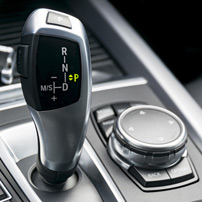Philadelphia Product Liability Lawyers Discuss Another Investigation for Fiat Chrysler
March 9, 2017 The National Highway Traffic Safety Administration (NHTSA) has launched a new investigation to look into consumer complaints regarding Fiat Chrysler’s transmission systems. This investigation follows an earlier recall in June 2016, after vehicles equipped with the Fiat Chrysler Monostable shifter rolled over, injuring people and even causing the death of a high profile celebrity, Anton Yelchin.
The National Highway Traffic Safety Administration (NHTSA) has launched a new investigation to look into consumer complaints regarding Fiat Chrysler’s transmission systems. This investigation follows an earlier recall in June 2016, after vehicles equipped with the Fiat Chrysler Monostable shifter rolled over, injuring people and even causing the death of a high profile celebrity, Anton Yelchin.
The most recent investigation comes on the heels of complaints of Ram 1500s and Dodge Durango SUVs that have a Fiat Chrysler rotary dial shifter. This new shifter is operated electronically and displays the gear that is selected on an instrument panel. One of Fiat Chrysler’s formerly recalled shifters had caused multiple rollovers, injuries and the death of Yelchin, who was killed when his Jeep pinned him against a wall. This type of shifter was present in many vehicle models, but now Fiat Chrysler’s new shifter is causing serious concerns for consumers.
Many people may have heard about the death of Yelchin, a well-known, young celebrity. But fewer may have heard that there was yet another fatality. Just a few months ago, a man lost his life after he too, like Yelchin, was pinned by his vehicle. In this case, it was a Ram 1500 with a rotary dial shifter that may have caused the loss of life.
In respect to the rotary shifters so far there have been at least 43 rollovers. Rollovers are the result of vehicular crashes where a car tips or falls over onto its side or roof. If that is not frightening enough, there have also been at least 9 injuries and 25 vehicular crashes. The affected vehicles continued to move while the engine was on and the car was in “park” position, and at times, even when the engine had been shut down completely.
Sometimes agencies and manufacturers try to put the responsibility or blame on consumers. The NHTSA, although conducting an investigation, still noted that in many cases of vehicle rollovers consumers had not utilized parking breaks. The administration urged consumers to use them in order to prevent vehicles from rolling away. But, if a vehicle is in “park” and turned off, it is reasonable for a consumer to assume that their car is indeed parked.
Manufacturers must insure that vehicles are made in a reasonably safe fashion to decrease the chances of consumers being injured or killed. Practicing caution is always recommended, but it is also fair to believe a product is safe when it is on the market, especially since there are safety regulations and guidelines in place to require this.
The truth is, these types of transmissions have been causing problems for years. There were two recalls in 2014 alone, and in June of 2016 there was a recall on Fiat Chrysler transmissions as well. At times the recalls have been due to mechanical defects and at others because of the style of shifter. Because of the new style of the rotary shifter, many consumers report being confused and believing their cars were in “park” when in fact they were in “drive” or “reverse” positions instead. This problem combined with electronic or mechanical defects can create a fatal outcome.
What we know is that the NHTSA’s investigation has turned up reports of accidents, rollovers and injuries. So far, the recall that was launched in 2016 has not been expanded to include these Ram 1500s and Dodge Durango SUVs with rotary shifters. It is common for an investigation to precipitate a formal recall, but there is no guarantee that the NHTSA will mandate one. With so many accidents, rollovers and injuries piling up, we hope that the agency works to protect consumers and tries to guarantee that in the future, vehicles are designed in more safe and reliable manners.
Philadelphia Products Liability Lawyers at Galfand Berger, LLP Seek Compensation for Victims Injured by Mechanical Defects
The Philadelphia product liability lawyers at Galfand Berger have successfully represented clients who have been injured by faulty or defective products. If you have any questions or concerns, an attorney at Galfand Berger, LLP can help. With offices located in Philadelphia, Reading and Bethlehem, we serve clients throughout Pennsylvania and New Jersey. To schedule a consultation, call us at 800-222-8792 or complete our online contact form.
 Google Screened
Google Screened
